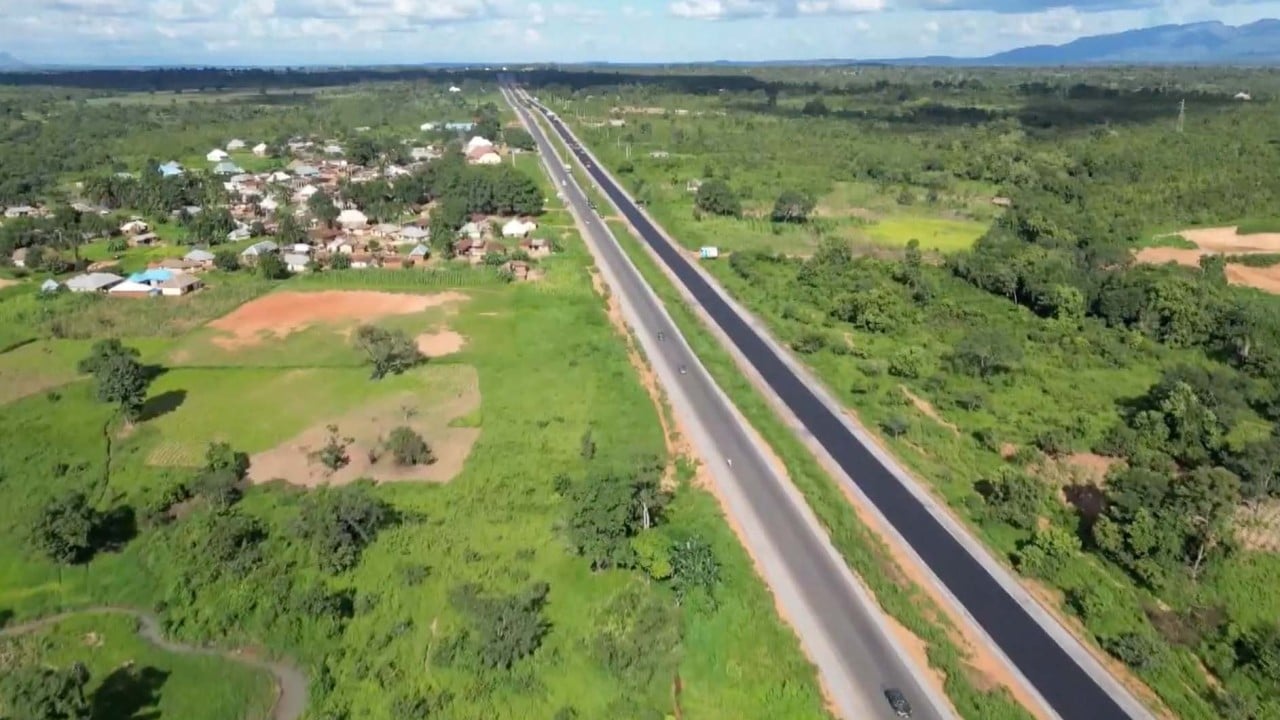
Military coup in Gabon puts China’s economic interests under threat
- The Bongo family, which has ruled the small African nation since 1967, has been ousted after the military seized power
- Though the turmoil threatens China’s economic ties there, some experts say long-term it could help reduce France’s influence
The coup ends a hold on power by the Bongo family of more than five decades. In 2009, Ali Bongo took over the presidency from his father Omar Bongo Ondimba following his death. Omar had ruled the former French colony since 1967.
Following the coup, Beijing called on all parties to hold talks while guaranteeing the personal safety of the deposed leader.
“China is closely following the developments in Gabon,” China’s foreign ministry said on Wednesday. “We call on relevant sides … to resolve differences peacefully through dialogue, restore order at an early date [and] ensure the personal safety of President Ali Bongo Ondimba.”
The Chinese embassy in Gabon said it had activated the emergency response mechanism and urged Chinese residents to stay indoors.
“It is recommended that all Chinese citizens in Gabon stay home and not go out, and in case of emergency, contact the embassy in a timely manner,” it said on Wednesday.

In September 2021, Beijing opposed the military coup in Guinea and called for an immediate release of then-president Alpha Conde.
But China’s response in the Gabonese coup is in line with its usual modus operandi of responding to such events, according to Benjamin Barton, an associate professor at the University of Nottingham’s Malaysia campus, and not as much of a knee-jerk reaction as it had to Conde being removed from power.
“Naturally, there will be concerns over the well-being of Chinese nationals in Gabon and making sure that the country will remain open for business despite the political and civil upheaval.”
Barton said even if the junta starts making specific demands in relation to the economic activities of foreign companies in the country, as was the case in Guinea, China should not be affected.
“I fully expect the status quo to remain as the robustness of the Gabonese economy largely depends on demand from its international partners, China included.”
Should the military junta remain in power, Beijing will have to work to [re-]establish ties that will anchor the relationship.
Speaking about the wave of military coups in the Sahel, a region of Africa just south of the Sahara, she said some analysts have attributed it to anti-French sentiment and the expansion of Russian influence.
“The coups are not seen as [being] in China’s interest because the instability inevitably undermines the prospect of economic cooperation and political ties,” Sun said.
Dr John Calabrese, a senior fellow at the Middle East Institute, said until the coup, the Bongo dynasty had run the country for 56 years.
“For a sizeable portion of that period, China has been Gabon’s leading trade partner. Importantly, China imports a substantial quantity of manganese ore from Gabon,” Calabrese said.
He said the coup could be viewed as a blow to China in several respects.

To begin with, he said, Ali Bongo is a “known quantity” for Beijing, someone with whom they have built a strong relationship.
“Should the military junta remain in power, Beijing will have to work to [re-]establish ties that will anchor the relationship.”
Viewed in the context of the political turmoil and security challenges in the Sahel and elsewhere in West and Central Africa, he said the added instability in Gabon places China’s interests at further risk.
But there might be a silver lining.
“To the extent that the Bongo dynasty’s grip on power has been broken and might lead to the further erosion of French influence over its former colony, Beijing’s prospects for currying favour with new leadership and extending its influence in the region could conceivably improve,” Calabrese said.
Aly-Khan Satchu, a sub-Saharan Africa geoeconomic analyst, said that the coup could eventually work in China’s favour.
“The diminishing French influence is going to allow for greater Chinese [and Russian] influence in these countries,” Satchu said.
Gabon and other recent coups in west and central Africa
“The Chinese economic model is self-evidently more attractive to Africans than the French model.”
China is Gabon’s largest trading partner with two-way trade reaching US$4.55 billion in 2022 – up more than 50 per cent year-on-year, according to Chinese customs data.
Gabon, with a population of just over two million, is heavily dependent on its oil and minerals, with crude petroleum and manganese ore contributing 83 per cent of the country’s revenue.
The nation also exports various wood products, but the Gabonese government wants to diversify its economy by attracting more investment into its forestry and tourism industries.
Gabon belongs to a small league of countries that absorb more carbon dioxide than they emit, making them “carbon sinks”. Key to Gabon’s forestry industry are a dozen Chinese companies that own forest concessions and more than 30 others that process the wood.


